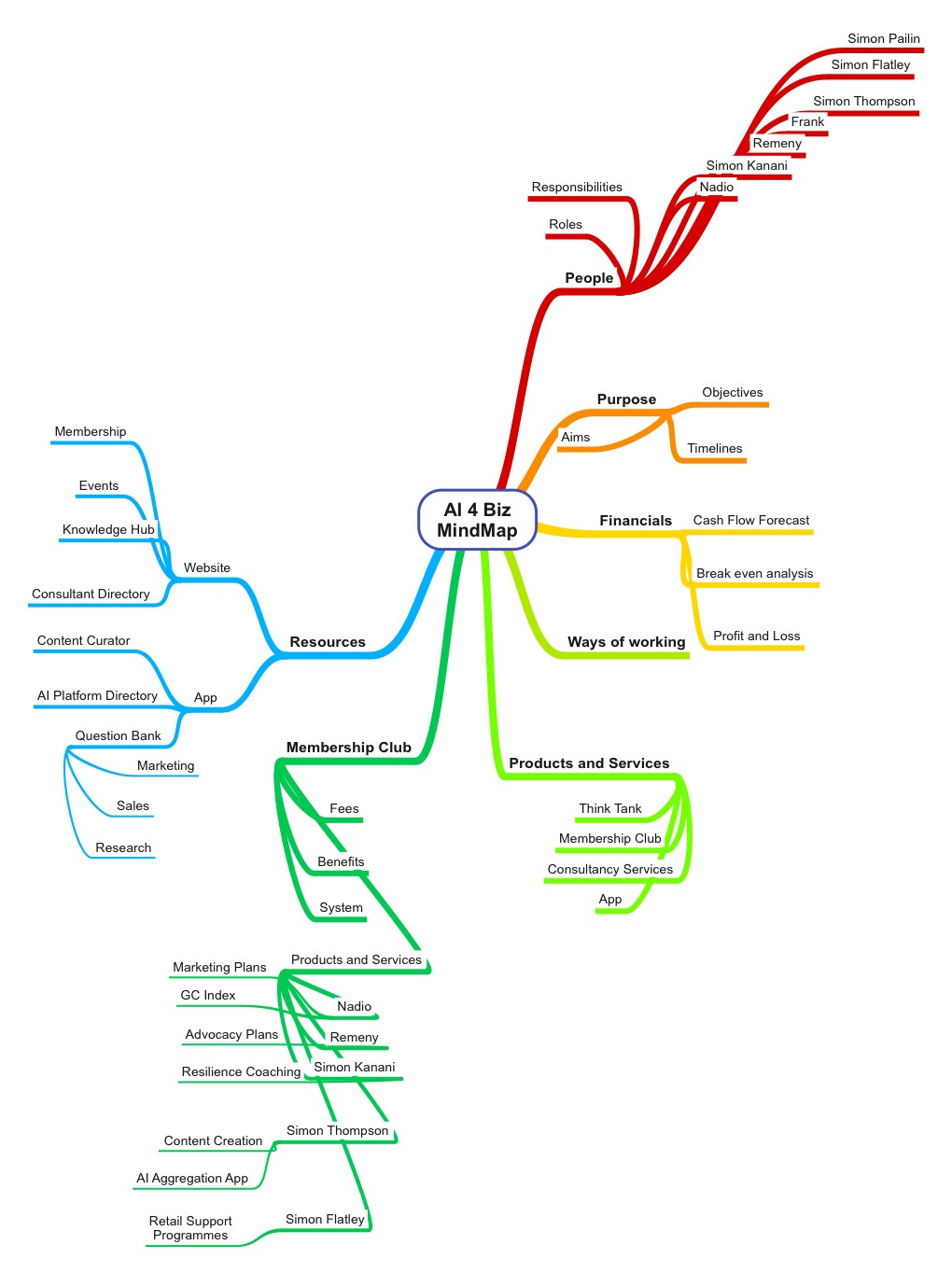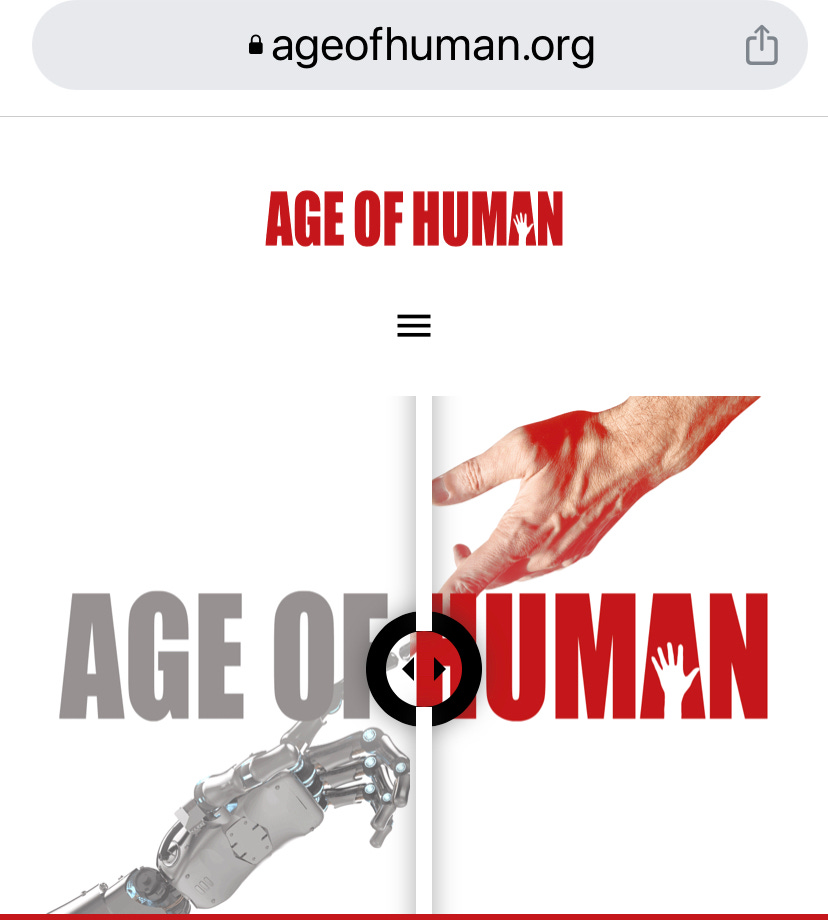Essay: Is it The Age of Human or The Age of AI … and how the hell did we get here? More importantly, where are we going next?
What lessons can the marketer learn from history as we race into another paradigm of catastrophic disruption?
The evolution of marketing has been marked by several distinct, identifiable eras, reflecting broader economic, technological, and societal changes. As we now enter into ‘The Age of AI’ (Bill Gates, Gates Notes, July 13, 2023) what does history teach us? Can it teach us anything as we accelerate through what is arguably the most disruptive paradigm ever known to mankind. The following, with help from #ChatGPT and Claude, is a summary description of the key drivers of each era:
Product Era (from early 1800’s to mid 1900’s)
The Industrial Revolution, a period of dramatic change from the late 18th to the mid-19th century, marked the transition from manual production methods to machine-based manufacturing. This era, often associated with the Product Era in marketing, was characterised by a focus on production efficiency and output. As technological advancements like the steam engine and mechanised looms revolutionised industries, especially textiles, iron, and coal, there was a massive increase in production capacity. The Product Era, spanning much of the 19th century and extending into the early 20th century, was defined by the philosophy that a good product would sell itself. Businesses concentrated mainly on manufacturing improvements and efficiencies, paying little attention to consumer needs or marketing strategies. Products were typically basic, functionality-driven, and produced en masse with limited variety. This era laid the groundwork for mass consumption and was a time when the availability and affordability of products began to dramatically reshape society and consumer habits.
VIGNETTE: An Introduction to Luddism
The Industrial Revolution, a period of dramatic change from the late 18th to the mid-19th century, marked the transition from manual production methods to machine-based manufacturing. This era, often associated with the Product Era in marketing, was characterised by a focus on production efficiency and output. As technological advancements like the steam engine and mechanised looms revolutionised industries, especially textiles, iron, and coal, there was a massive increase in production capacity. The Product Era, spanning much of the 19th century and extending into the early 20th century, was defined by the philosophy that a good product would sell itself. Businesses concentrated mainly on manufacturing improvements and efficiencies, paying little attention to consumer needs or marketing strategies. Products were typically basic, functionality-driven, and produced en masse with limited variety. This era laid the groundwork for mass consumption and was a time when the availability and affordability of products began to dramatically reshape society and consumer habits.
Production Era (from Industrial Revolution up to the 1950s)
During the production era, the focus was on manufacturing efficiencies and economies of scale. Products were limited in variety, and the demand often outstripped supply. Keith's "Marketing Revolution" (1960) suggests that marketing during this time was a mere delivery function, with the famous quote from Ford about customers having any car colour as long as it was black encapsulating the era's sentiment. But this new found super-efficiency resulted in stockpiling in large, expensive warehouses …
Sales Era (1950s to 1960s)
As competition increased, the sales era emerged, characterised by the belief that consumers needed to be persuaded to buy. This was the age of hard-sell tactics and selling what the company made rather than what the market wanted. Theodore Levitt's "Marketing Myopia" (1960) challenged businesses to focus on customer needs rather than merely pushing products. But we continued to ‘make’ more than we needed for a growing market of new sophisticates with disposable income enabling them to have more choice …
Marketing Department Era (1960s to 1980s)
The marketing department era saw businesses recognising the importance of marketing as a central business function. Peter Drucker's assertion in the late 1950s that "the business enterprise has two—and only these two—basic functions: marketing and innovation" became widely accepted. But we were still not ‘customer focused’. Instead, our mission was to shift what we had made …
Marketing Company Era (1980s to 1990s)
During this time, marketing became more strategic, and companies began to adopt a market-oriented approach. The famous work of Kotler on "Marketing Management" (1967, with updates and editions following) provided the foundational text for this approach, focusing on customer satisfaction, market segmentation, and integrated marketing communications. Yaay! Marketing started to come good …
Relationship Marketing (1990s to Early 2000s)
The relationship marketing era emerged in the 1990s, with the recognition that keeping existing customers was as important as acquiring new ones. Academics like Christian Grönroos and Leonard Berry advocated the importance of customer relationships and retention, marking a shift towards long-term customer engagement. Remember the Ansoff Matrix? Cornflakes are just as tasty at suppertime as they are for breakfast …
Societal Marketing (2000s)
The societal marketing concept developed as companies began to realise their broader responsibilities to society. It proposed that companies should balance three considerations in their marketing strategies: company profits, consumer desires, and the public's interest. This was reflected in the work of Kotler, Armstrong, and Saunders, particularly in "Principles of Marketing" (1996), which has been updated in various editions since. The emergence of such horrors as global warming caused in part by excessive consumerism as described by Naomi Campbell in her groundbreaking bestseller: No Logo, pricked our collective consciousnes.
Digital and Social Media Marketing (2010s to Present)
The rise of digital technology has ushered in an era where consumer engagement and experience are paramount. Social media platforms have given consumers a voice and shifted the power dynamics in the market. Philip Kotler's concept of Marketing 4.0 suggests that the digital world has transformed the way businesses interact with consumers, who now demand more authenticity, social engagement, and personalised experiences. Welcome to the new world of hypersegmentation, hypertargeting and, oh, the era of massive returns as consumers over-order online with the comfort of being able to return what they do not need. Erm …when will we get it right?
Sustainable and Ethical Marketing (Present)
Currently, there is a growing emphasis on sustainable and ethical marketing. Consumers are increasingly aware of and concerned about environmental issues, social justice, and corporate governance. This has been supported by academic research, such as the work of Stuart Hart, who in "Capitalism at the Crossroads" (2005), highlights the need for sustainable value creation. Marketing now must not only persuade or satisfy the customer but also contribute positively to society and the planet. And just when we were getting to grips with our collective responsibilities, along comes ChatGPT (other LLM’s are available!).
So … as Meatloaf would say: What’s it going to be [boy]?
The Age of Human, or the Age of AI? Or, maybe, just maybe, we can put humanity at the centre of AI? Now there’s a thought!!
Postscript
………………………………………………………………………………………………………
What marketing era is expected to come next in the light of the emergence of AI?
The emergence of AI is giving rise to what might be termed the ‘Intelligent Marketing Era’, a phase where the capabilities of AI are deeply integrated into marketing strategies and operations. Personally, I prefer to think of us entering a period of ‘Augmented Marketing’. This era is characterised by the following aspects:
1. Predictive Analytics and Personalisation:
AI's ability to analyse vast amounts of data can lead to highly accurate predictions about consumer behaviour. This allows for unprecedented personalisation of marketing efforts, not just in targeting but also in product development, customer service, and user experience. References to this can be found in the work of authors like Chaffey and Ellis-Chadwick in their book "Digital Marketing" (2019), which discusses the implications of digital technologies for marketing.
2. Conversational Marketing and AI:
AI-driven chatbots and virtual assistants are becoming sophisticated enough to handle complex customer interactions. This conversational marketing allows for seamless 24/7 engagement, enhancing customer service and creating a more personalised shopping experience. Vlahos’ work on "Conversational AI" (2019) explores this trend extensively.
3. Real-time Decision Making:
The ability of AI to process information in real-time and adjust marketing strategies instantaneously will enable businesses to respond to market changes more swiftly. This could lead to a more dynamic and agile marketing environment. Kotler's "Marketing 4.0" (2016) touches upon this as it explores marketing in a digital world.
4. Ethical and Privacy Considerations:
With AI's growth, ethical marketing will gain prominence, focusing on consumer privacy, data protection, and the avoidance of manipulative marketing practices. This is highlighted in the General Data Protection Regulation (GDPR (other regulations apply)) and discussions in academic circles about the ethics of AI.
5. Integrated Experience Across Channels:
AI will enable the integration of online and offline experiences, providing a seamless omnichannel experience for customers. This is aligned with the concept of "phygital" marketing, where physical and digital experiences are blurred.
6. Augmented Reality (AR) and Virtual Reality (VR) Marketing:
With AI, AR, and VR technologies will further enhance the customer experience, creating immersive brand experiences that were previously not possible. This is explored in the works of McCaffrey and Pearson in "Augmented Reality: An Emerging Technologies Guide to AR" (2012).
7. Automated and Optimised Content Creation:
AI tools are beginning to create content that is optimised for search engines, social media, and specific audiences, leading to more effective and efficient content marketing strategies.
8. Sustainable Marketing:
AI will also play a crucial role in promoting sustainable marketing practices by optimising resource allocation and reducing waste through more accurate demand forecasting and supply chain management.
As these trends gain momentum, the Intelligent Marketing Era is expected to redefine the role of marketers, who will increasingly become strategists and analysts, leveraging AI to make data-driven decisions and to enhance creativity and innovation. Academic work is already exploring these boundaries, and future research will further define this era's contours.
VIGNETTE 2: Thatcherism: a paradigm within a shift
Margaret Thatcher's tenure as Prime Minister of the United Kingdom from 1979 to 1990 was marked by a decisive shift towards a free market economy, a move that came to be known as Thatcherism. This period was characterised by substantial economic restructuring.
Historic Context & Adoption (1979-1990)
When Thatcher entered office in 1979, the UK was grappling with high inflation, economic stagnation, and widespread industrial unrest, often referred to as the "Winter of Discontent" (1978-1979). The post-war consensus had led to a mixed economy with significant state ownership of key industries and utilities, substantial welfare provisions, and a tendency towards state intervention in economic affairs.
Key Policies and Dates
Monetarism (From 1979): Thatcher's government, influenced by the economic theories of Milton Friedman and Friedrich Hayek, implemented policies to control the money supply and combat inflation, which was a significant departure from the Keynesian economic policies of previous governments.
Privatisation (Early 1980s): A major thrust of her policy was privatisation, with significant sales of state-owned enterprises like British Telecom (1984), British Gas (1986), and British Airways (1987). This not only reduced the size of the public sector but also aimed to widen share ownership among the population.
Deregulation (Throughout the 1980s): Deregulation, especially in the financial sector, was another cornerstone. The "Big Bang" financial reforms of 1986 deregulated the London Stock Exchange, which greatly expanded the market's size and global significance.
Trade Union Legislation (1980, 1982, 1984): Thatcher's government passed a series of laws aimed at reducing the power of trade unions, with the most notable confrontation being the miners' strike of 1984-1985. These laws were designed to make it more difficult for unions to strike and gave companies more control over their workforce.
Taxation (1980s): The Thatcher government significantly reduced income and corporate tax rates. The basic rate of income tax fell from 33% in 1979 to 25% by 1988, and the top rate from 83% to 40%.
Significance of Thatcherism today
The significance of these policies was profound. Thatcherism aimed to foster entrepreneurial spirit, reduce state intervention, and encourage private ownership and free markets. The results were mixed, with economic growth and a more dynamic business environment on one side, but also increased unemployment and social inequality on the other. The UK's industrial landscape was irrevocably changed, with a shift away from manufacturing towards services, particularly financial services.
Her policies were contentious and remain so, with supporters pointing to the rise of London as a global financial hub and critics highlighting the social costs. The impact of Thatcher's policies can be seen in the work of academics like Andrew Gamble in "The Free Economy and the Strong State" (1988), which explores the ideologies and outcomes of Thatcherism.
The legacy of Thatcherism set the UK on a path of neoliberal economic policy (let’s not mention Liz Truss!) that subsequent governments have, to varying degrees, followed. It remains a defining period in the UK's economic history and continues to shape debates about the role of government in the economy.
VIGNETTE 3: Davos, The Fourth Industrial Revolution and the emergence of The Age of Human
Davos annual economic forum claims we are experiencing ‘the fourth Industrial Revolution’.
The narrative of industrial revolutions, as discussed above, is a chronicle of human innovation and its profound impact on society.
Recap:
The First Industrial Revolution (Late 18th to Early 19th Century)
The Second Industrial Revolution (Late 19th to Early 20th Century)
The Third Industrial Revolution (Late 20th Century)
The Fourth Industrial Revolution (21st Century Onwards)
Termed by Klaus Schwab, founder of the World Economic Forum, the Fourth Industrial Revolution (4IR) encompasses present and future technologies that combine physical, digital, and biological spheres. It includes advancements in artificial intelligence (AI), robotics, the Internet of Things (IoT), genetic engineering, quantum computing, and other technologies. The 4IR is characterised by the blurring of lines between the physical, digital, and biological worlds, with significant implications for economies, job markets, and social systems.
Https://AgeofHuman.org
Future Significance
The 4IR holds the potential for transformative changes in how we live and work. It promises to enhance the efficiency and connectivity of global industries, but also raises questions about privacy, security, and the future of employment. The WEF suggests that the 4IR could lead to a more sustainable, inclusive, human-centred future if managed responsibly.
Elon Musk, when interviewed by British Prime Minister Rishi Sunak at the AI Forum hosted at Bletchley Park, went so far as to say we might not even need to work.
The future significance of the 4IR may well be in how it addresses the grand challenges of our time: climate change, health pandemics, and inequality.
As we navigate the currents of the 4IR, the key will be to harness its potential while mitigating its risks, ensuring that its benefits are widely and equitably distributed (don’t get me started on Data Colonialism!).. This revolution, more than the ones before it, has the ability to shape our society in a holistic and pervasive manner, fundamentally altering our relationship with technology and each other.
"The Age of Human" is a concept that can be interpreted in several ways, but within the context of the Fourth Industrial Revolution (4IR), it typically refers to an era where human creativity, empathy, and interdisciplinary knowledge are crucial in harnessing the potential of technological advancements. It underscores the importance of human-centric approaches in an increasingly automated and AI-driven world.
Relation to the Fourth Industrial Revolution:
The 4IR, with its deep integration of technology into every aspect of life, raises concerns about the role of humans in the future economy. There's a growing recognition that while machines can handle tasks with efficiency, the uniquely human abilities such as critical thinking, creativity, emotional intelligence, and ethical judgement are irreplaceable and will be highly valued.
In the "Age of Human," proposed by Cook, Granata and Wearne (www.ageofhuman.org) the emphasis is on:
- Complementing Technology with Humanity: Human insight is necessary to guide and apply technological advancements in ways that are beneficial to society.
- Ethical Frameworks: As AI and biotechnology raise ethical questions, human values and philosophical perspectives are essential to navigate these issues responsibly.
- Jobs of the Future: While automation may displace certain jobs, it also creates new opportunities that require human qualities such as complex problem-solving and social interaction.
- Lifelong Learning: The rapid pace of change necessitates continuous skill development, highlighting the importance of human adaptability and learning.
Concluding Thoughts
Does history help us make sense of ‘the now’? Can we apply lessons learnt from paradigm shifts that ubiquitously but categorically have changed our world, sometimes for the worse but mostly for better, to this, our current era of catastrophic disruption? Where will humanity fit in the race to hyperautomate, super-accelerate, innovate and educate?
Hope is not a strategy. We simply have to adapt and do good to avoid self-destructing. Thanks for reading!
Nadio Granata FCIM, FHEA is the founder of the AI Collective and co-founder of Age of Human Think Tank. He is a published author, senior academic and evangelist for the democratisation of AI. You can discover more about him here: http://nadio.ai








